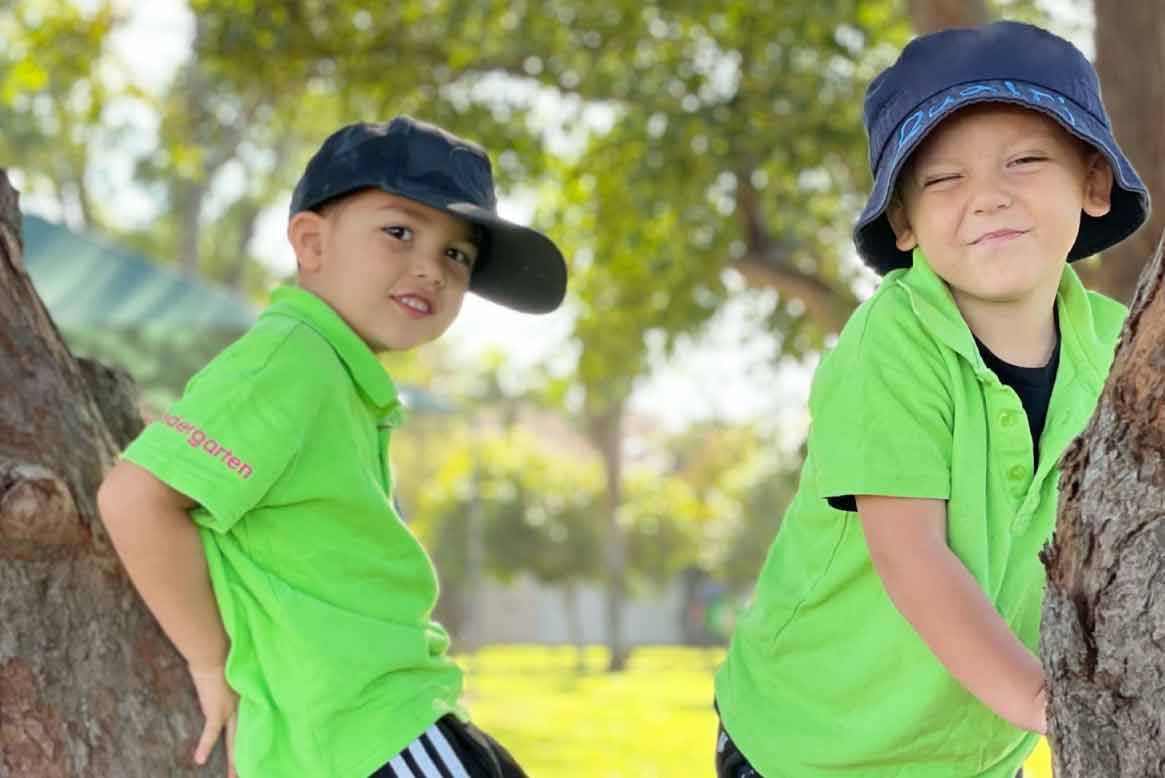By Sabrina Rogers-Anderson.
Sabrina is a writer, author and mother to three girls, an eight-year-old along with five-year-old twins. An expert in the beauty and struggles of parenthood, she shares her wisdom here.
Have you ever had your mind blown watching a friend’s two-year-old get dressed on their own when your five-year-old can’t even put on a sock? Or sheepishly realised you resemble a pack mule carrying all your child’s belongings into child care because they flat-out refuse to lift a pinkie?
Sigh. Been there, done that, wondered so many times where I’ve gone wrong! Until the day where another mum at child care saw my twins unpacking their bags like champs and exclaimed, “Wow! I wish my son did that!” That’s when I realised that each child grows at their own pace and feels more confident and independent in certain situations than others.
As much as I’d like to take credit for the massive leap in autonomy they’ve taken this year, their educators at preschool are angels in disguise. They’ve gently, firmly and oh-so-caringly encouraged them to become more independent and it’s totally working! I’ve been following through with the same techniques and routines at home and I’m so pleased with how far they’ve come. They’re really ready for school next year.
So, what are these magical techniques, you ask? Here are six top tips to help you foster independence and confidence in your preschooler.
1. Offer them (limited) choices
I remember feeling so frustrated when my eldest daughter was three because she wanted to do everything her way… and her way was generally unsafe or absurd. (Wearing a snorkel to the supermarket or sitting on my lap while I drove? I mean, come on!). The more she tried to exert her will, the more I pushed back and we ended up locked in a constant battle. Life wasn’t fun. One day, I read an article written by a child psychologist that suggested I offer her limited choices – say, between the red shoes and the green shoes – and let her pick. That tip was life-changing! I offered her choices that wouldn’t put her life in danger and she had a sense of control, so our battles eased. Hooray!
2. Ask them to do simple chores
A study conducted at the University of Virginia found that children who performed chores in kindergarten were more self-competent and had better peer relationships and academic results than those who didn’t by the time they were in third grade. Start small – such as tidying up toys and clearing the table – and build up from there. You’ll probably meet with resistance and find that it creates more work for you at first, but the benefits are worth it in the long run. My eight-year-old and my five-year-old twins only need me to remind them to make their beds four times each morning instead of 12 times now!
3. Resist the temptation to take over
Have you ever noticed how child care and preschool teachers patiently let children work out how to do difficult tasks on their own? (I wish I had half their patience!) Take a page from their book and try to give your child the time they need to work out how to open a snack container or tie their shoelaces. The more they learn to do on their own, the more independent they’ll become.
4. Encourage risky play

Risky play refers to any type of play that carries a risk of injury but helps children test their limits. It might sound dangerous, but experts say it helps children develop their independence and resilience. They suggest parents avoid hovering and let their children climb high and run fast.
If you don’t have the stomach to watch as your child scales to the very top of the play structure at the playground, your child care centre is a safe place to let your child engage in risky play. Early childhood educators are trained to encourage children to test their limits within safe boundaries.
5. Praise their successes
When you ask your child to help you bake muffins and they spill flour on the floor and drop eggshells in the batter, you probably want to scream (I know I do!). Take deep breaths and remind yourself that every step they take on their own – no matter how messy – is a step towards greater independence. Try to praise their efforts to help build their confidence.
When you offer praise, direct it at their efforts – “You’re getting so good at making muffins because you keep practising” – rather than their personal qualities – “You’re such a talented baker!” – because research shows that the latter can backfire and make children more ashamed when they fail.
6. Send them to one of our centres
One of the pillars of our curriculum – which is based on the Early Years Learning Framework – is the promotion of independence. Our educators are trained to provide children with opportunities to learn, grow and gain confidence in their abilities. They’ll gently nurture your child’s potential and create a solid foundation of social and emotional wellbeing in preparation for school and life beyond. And your child will have so much fun along the way!
If you have any questions or concerns about your child’s independence and confidence, chat to our friendly team. We’re always here to help and support your family in any way we can.
